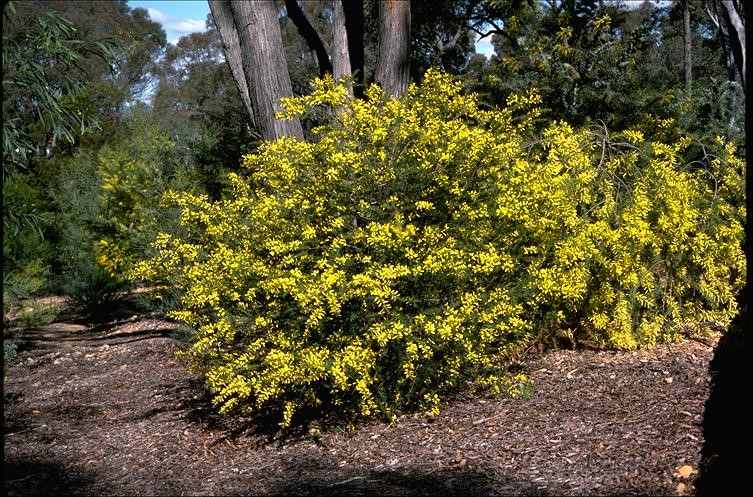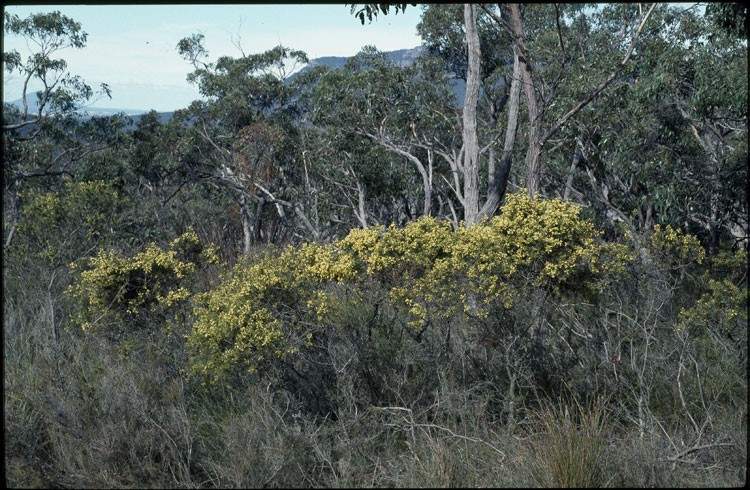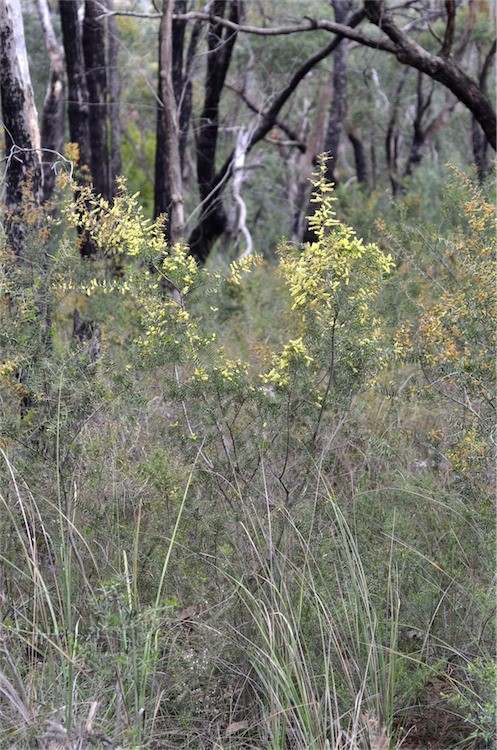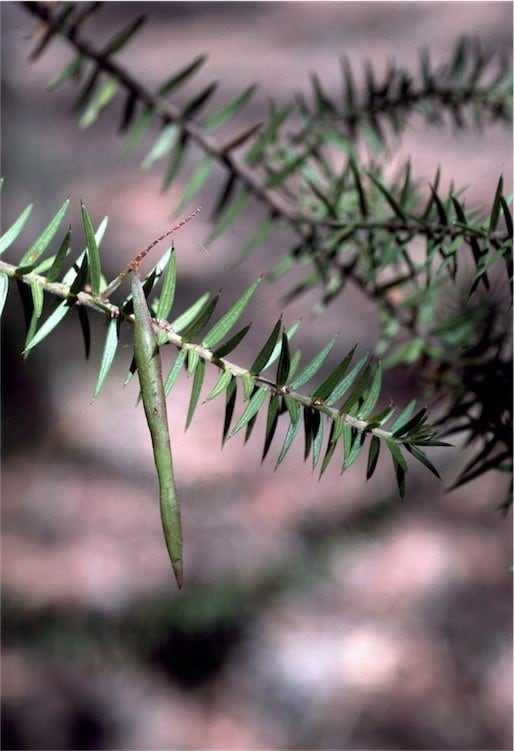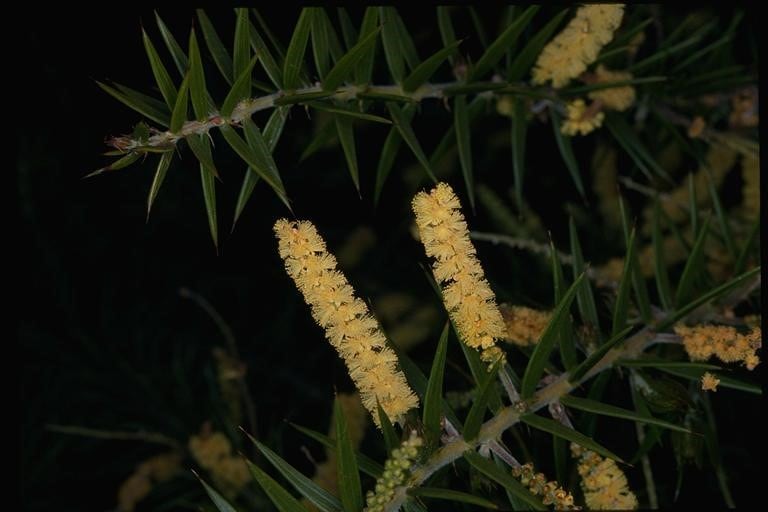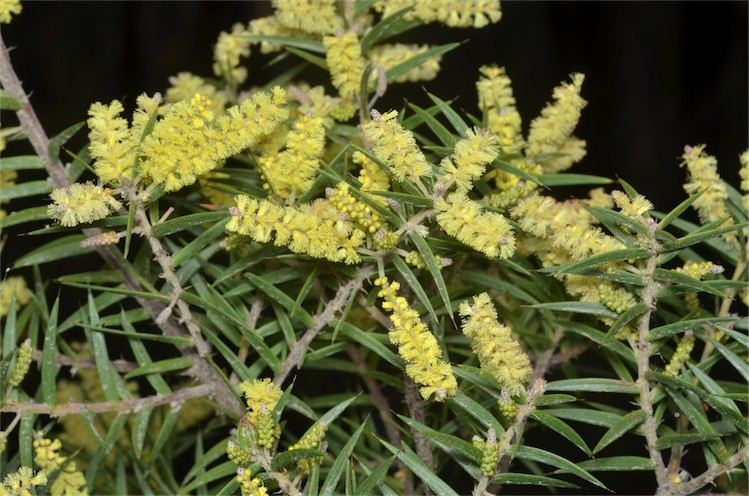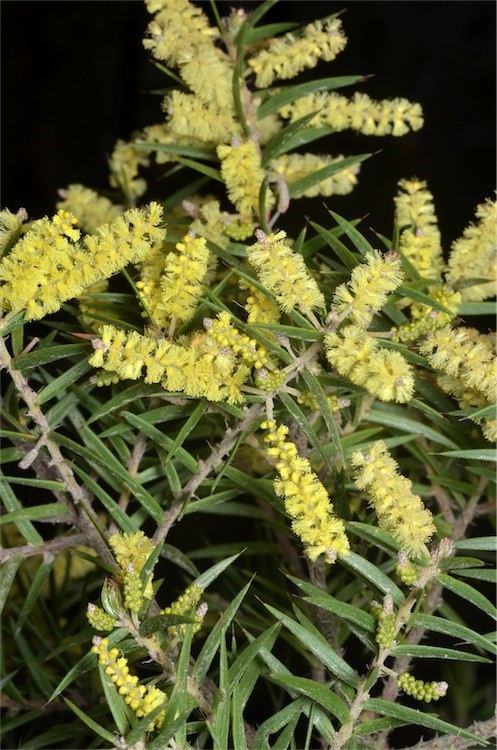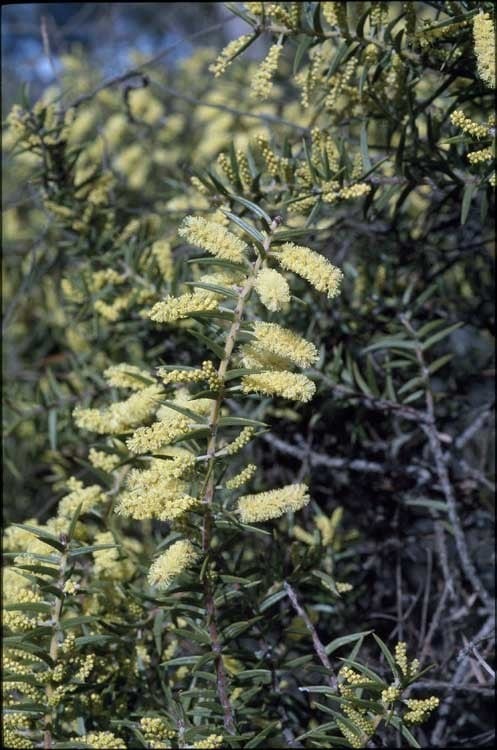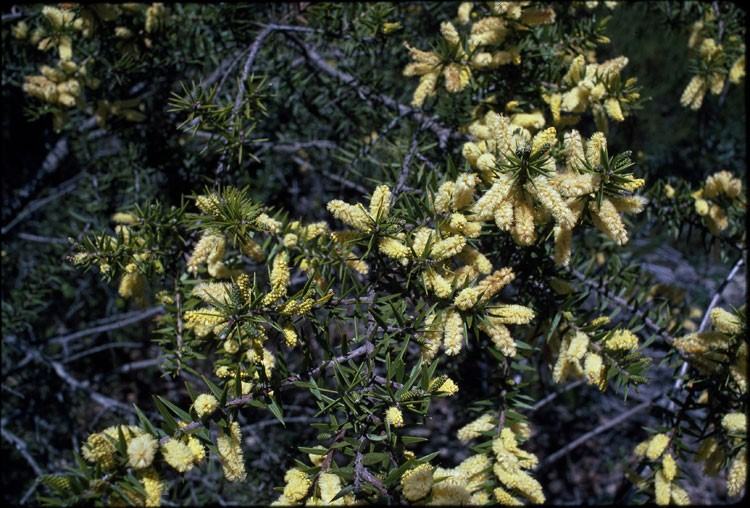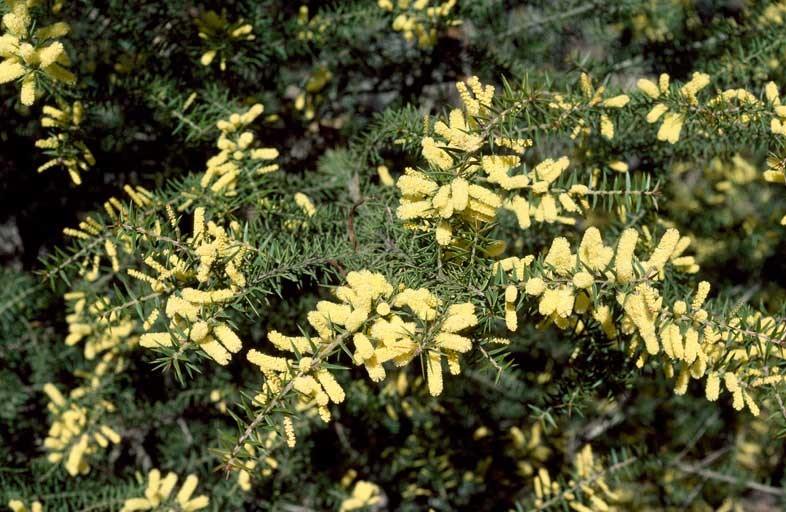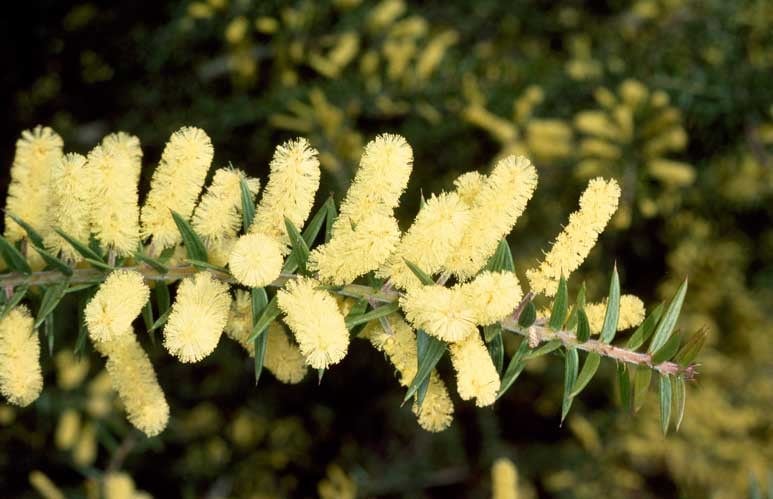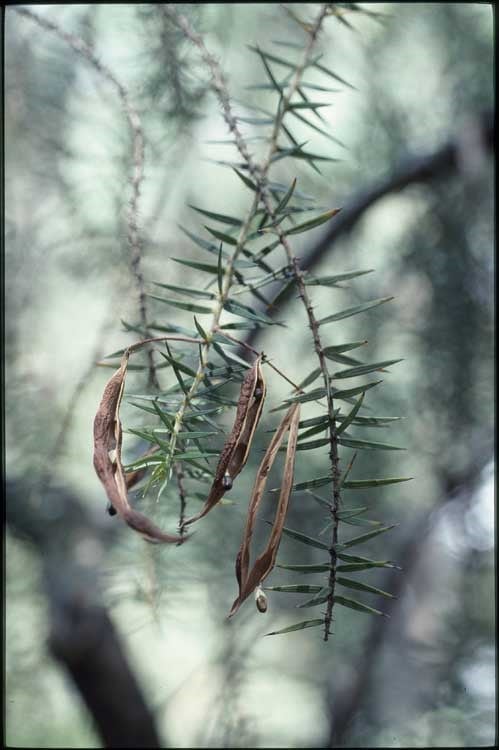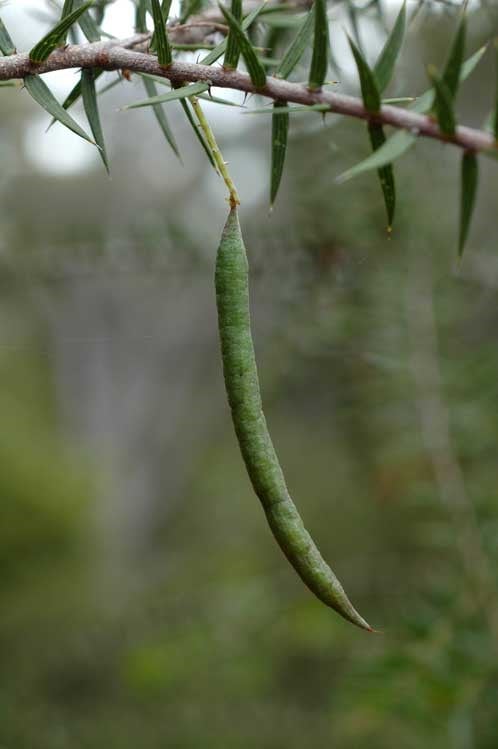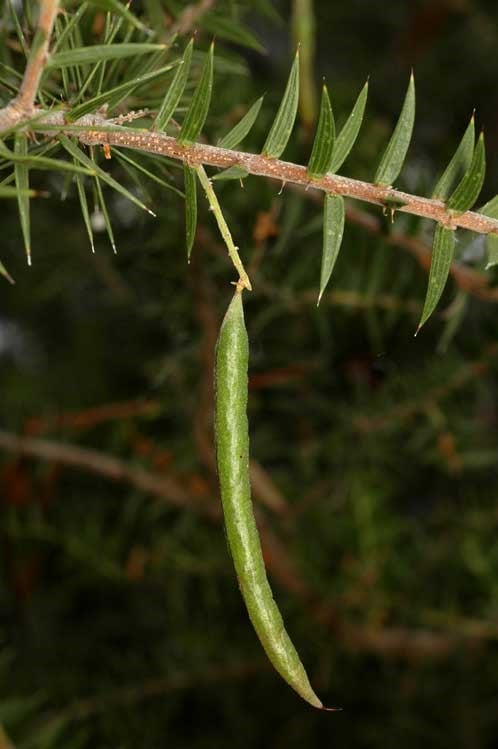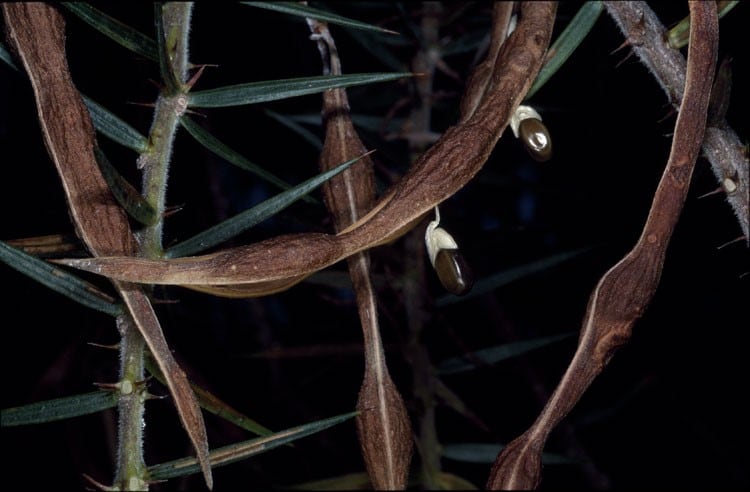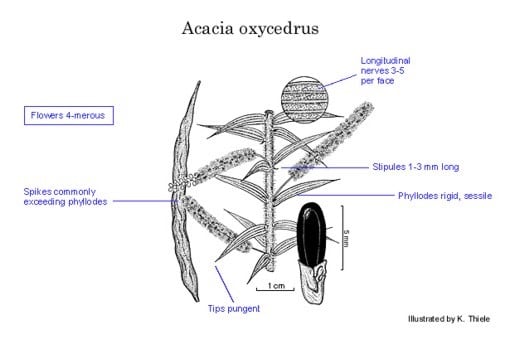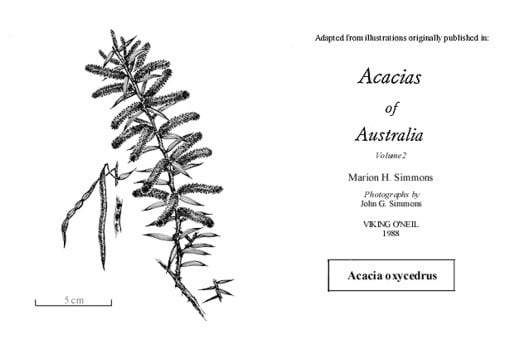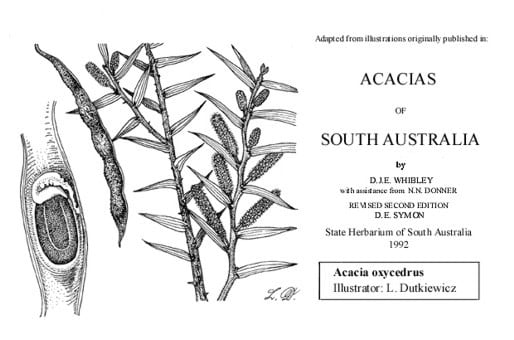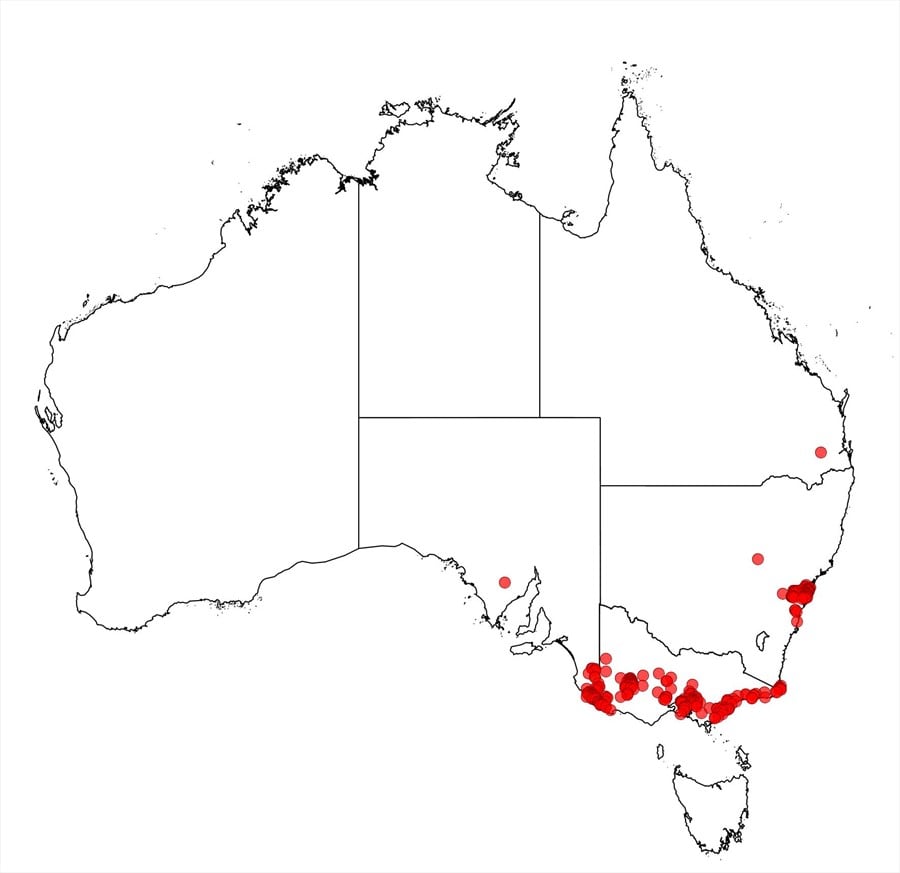Acacia oxycedrus Sieber ex DC.
WATTLE
Acacias of Australia
Common Name
Spike Wattle
Family
Fabaceae
Distribution
Widespread in heathlands, woodlands and forests ranging from far south-eastern S.A. through southern and eastern Vic. to N.S.W. where it occurs in the Blue Mtns and N of Sydney and the far S coast.
Description
Tree or shrub 1–10 m high, prickly, erect, spreading or contorted. Young stems commonly hispid. Stipules persistent, prominent, spine-like or setaceous, commonly rigid, 1–3 mm long. Phyllodes crowded, scattered but sometimes a few ±whorled or fasciculate, sessile, linear, lanceolate or subulate, 1–4 cm long, 1.5–4 (–6) mm wide, pungent, mostly glabrous, with 3–5 nerves; upper nerve becoming marginal towards apex of phyllode; gland absent. Inflorescences with peduncles 3–12 mm long; spikes dense, 1.5–5 cm long, commonly exceeding phyllodes; bracteoles stipitate, navicular, 0.6–1 mm long, pubescent. Flowers 4-merous; sepals united. Pods cylindrical or slightly compressed, 6–11 cm long, 3–6 (–8) mm wide, woody, longitudinally wrinkled. Seeds elliptic, 3.5–5 mm long; funicle short, thick, folded 2 or 3 times; aril turbinate.
Phenology
Flowers June–Nov. and fruits Dec.–Feb.
Specimens
S.A.: 1.6 km N of Wandilo Rly Siding, c. 15 km N of Mt Gambier, I.B.Wilson 467 (AD, MEL). N.S.W.: Greenmans Valley Rd, W of Mt White, R.Coveny 11219, A.Tillsley & B.Wallace (CANB, NSW); Nadgee Nature Reserve, N.Fisher 10 (CANB). Vic.: Hollow Mtn Ridge, Victoria Ra., The Grampians, R.B.Filson 5265 (MEL); 3 km W of Powelltown, D.B.Foreman 1034 (CANB, HO, MEL, NSW).
Notes
Differs from A. verticillata by its prominent and persistent stipules and its much larger plurinerved phyllodes. Also, unlike A. verticillata the phyllodes of A. oxycedrus are not clearly fasciculate or whorled.
All of these presumed hybrids can be distinguished easily from A. oxycedrus by the length of their phyllodes which exceed 4.5 cm and from their supposed parents by their phyllodes gradually tapering into hard sharp and rigid points and often, also, by the presence of obvious and persistent stipules.
Acacia longifolia subsp. longifolia is thought also to hybridise with A. oxycedrus and material derived from these supposed parents has been recorded from the Heatherton and Clayton districts, south-east of Melbourne. Similar material with the same putative parents has been recorded from the Patonga area, S of Gosford in N.S.W. There is evidence, also, that A. floribunda hybridises with A. oxycedrus and specimens apparently referable to a hybrid between these parents has been recorded from Brooklyn on the Hawkesbury R., N of Sydney.
Apparently A. oxycedrus also hybridises with A. mucronata subsp. longifolia and indeed H.Williamson (Victorian Naturalist 46: 200 (1930)) described A. mucronata var. acuta from specimens which appear intermediate between these two presumptive parents. These specimens were gathered near Halls Gap in The Grampians and near Warburton in central Vic. Similar material has also been recorded from the Plenty Ranges, N of Melbourne, Cockatoo, E of Melbourne and Mt Observation near Marysville also in central Vic.
Acacia oxycedrus appears to be related also to the ‘A. longifolia group’ as evidenced by its hybridising readily with several closely related species in that group. Putative hybrids with A. longifolia subsp. sophorae as the second parent have been recorded from The Lookout near Woy Woy, N of Sydney in N.S.W., between Nelson and Kentbrook in far south-western Vic. and also from Sperm Whale Head, S of Bairnsdale on the Vic. coast.
FOA Reference
Data derived from Flora of Australia Volumes 11A (2001), 11B (2001) and 12 (1998), products of ABRS, ©Commonwealth of Australia
Author
Minor edits by B.R.Maslin
A.B.Court
This identification key and fact sheets are available as a mobile application:
URL: https://apps.lucidcentral.org/wattle/
© Copyright 2018. All rights reserved.
